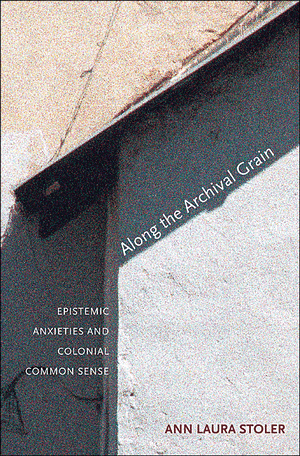Félix Guattari, Suely Rolnik: Molecular Revolution in Brazil (1986–) [BR-PT, ES, EN]
Filed under book | Tags: · abstract machine, body, brazil, cartography, culture, desire, deterritorialization, emotion, energy, history, love, philosophy, politics, psychoanalysis, schizoanalysis, semiotics, sex, subjectivation, subjectivity, unconscious

“Following Brazil’s first democratic election after two decades of military dictatorship, French philosopher Félix Guattari traveled through Brazil in 1982 with Brazilian psychoanalyst Suely Rolnik and discovered an exciting, new political vitality. In the infancy of its new republic, Brazil was moving against traditional hierarchies of control and totalitarian regimes and founding a revolution of ideas and politics. Molecular Revolution in Brazil documents the conversations, discussions, and debates that arose during the trip, including a dialogue between Guattari and Brazil’s future President Luis Ignacia Lula da Silva, then a young gubernatorial candidate. Through these exchanges, Guattari cuts through to the shadowy practices of globalization gone awry and boldly charts a revolution in practice.
Assembled and edited by Rolnik, Molecular Revolution in Brazil is organized thematically; aphoristic at times, it presents a lesser-known, more overtly political aspect of Guattari’s work. Originally published in Brazil in 1986 as Micropolitica: Cartografias do desejo, the book became a crucial reference for political movements in Brazil in the 1980s and 1990s. It now provides English-speaking readers with an invaluable picture of the radical thought and optimism that lies at the root of Lula’s Brazil.”
Originally published as Micropolítica: Cartografias do desejo, Vozes, Petrópolis, 1986.
English edition
Translated by Karel Clapshow and Brian Holmes
Publisher Semiotext(e), Los Angeles 2008
Foreign Agents series
ISBN 1584350512, 9781584350514
495 pages
Review: Aliocha wald Lasowski (Chimères, 2007, FR).
Publisher (EN)
Publisher (ES, Madrid)
Publisher (ES, Buenos Aires)
Micropolítica. Cartografias do desejo (BR-Portuguese, 4th ed., 1984/1996, added on 2017-2-22)
Micropolítica. Cartografías del deseo (Spanish, trans. Florencia Gómez, Madrid ed., 2006, added on 2013-9-26)
Molecular Revolution in Brazil (English, trans. Karel Clapshow and Brian Holmes, 2008, updated on 2017-6-26)
Micropolítica. Cartografías del deseo (Spanish, trans. Florencia Gómez, Buenos Aires ed., 2nd ed., 2006/2013, added on 2020-11-14)
Ann Laura Stoler: Along the Archival Grain: Epistemic Anxieties and Colonial Common Sense (2010)
Filed under book | Tags: · archive, colonialism, ethnography, governance, history, politics

“Along the Archival Grain offers a unique methodological and analytic opening to the affective registers of imperial governance and the political content of archival forms. In a series of nuanced mediations on the nature of colonial documents from the nineteenth-century Netherlands Indies, Ann Laura Stoler identifies the social epistemologies that guided perception and practice, revealing the problematic racial ontologies of that confused epistemic space.
Navigating familiar and extraordinary paths through the lettered lives of those who ruled, she seizes on moments when common sense failed and prevailing categories no longer seemed to work. She asks not what colonial agents knew, but what happened when what they thought they knew they found they did not. Rejecting the notion that archival labor be approached as an extractive enterprise, Stoler sets her sights on archival production as a consequential act of governance, as a field of force with violent effect, and not least as a vivid space to do ethnography.”
Publisher Princeton University Press, 2010
ISBN 0691146365, 9780691146362
314 pages
PDF (updated on 2016-10-13)
Comments (4)Alain Badiou: The Century (2005–)
Filed under book | Tags: · art, avant-garde, cinema, fascism, france, history, ideology, nazism, nihilism, philosophy, politics, reality, religion, united states, violence

“Everywhere, the twentieth century has been judged and condemned: the century of totalitarian terror, of utopian and criminal ideologies, of empty illusions, of genocides, of false avant-gardes, of democratic realism everywhere replaced by abstraction.
It is not Badiou’s wish to plead for an accused that is perfectly capable of defending itself without the authors aid. Nor does he seek to proclaim, like Frantz, the hero of Sartre’s Prisoners of Altona, ‘I have taken the century on my shoulders and I have said: I will answer for it!’ The Century simply aims to examine what this accursed century, from within its own unfolding, said that it was. Badiou’s proposal is to reopen the dossier on the century – not from the angle of those wise and sated judges we too often claim to be, but from the standpoint of the century itself.”
First published as Le Siècle, 2005.
Translated, with a Commentary and Notes by Alberto Toscano
Publisher Polity, 2007
ISBN 0745636314, 9780745636313
233 pages
PDF (updated on 2020-7-5)
Comment (0)
